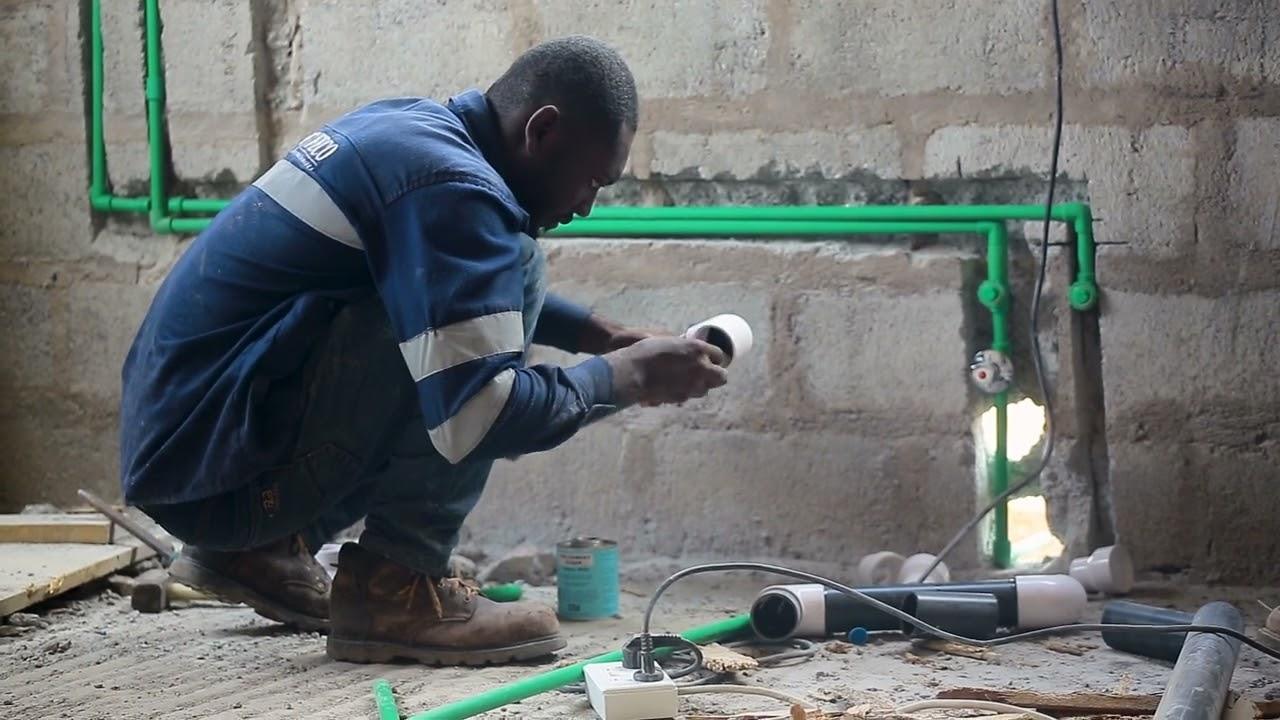Enhance your plumbing skills with our expert-led courses in Kenya. Gain practical knowledge and industry insights to excel in your plumbing career. At Starwan Technical Institute, we are committed to providing top-notch education and hands-on training across various fields. Our plumbing course is designed to equip you with the essential skills and knowledge to excel in this crucial trade.
Our Professional Plumbing Certification courses in kenya offers comprehensive training in all aspects of plumbing. From basic pipe installation to advanced systems maintenance, this course is designed to prepare you for a successful career in plumbing.
A plumbing course provides training in the skills needed to install, repair, and maintain plumbing systems. These systems include pipes, fixtures, and appliances that manage water supply and drainage. Plumbing is a crucial trade, and well-trained plumbers are always in demand due to the essential nature of their work.
1. Plumbing Course Content
a. Basic Plumbing course Skills
- Introduction to Plumbing: Overview of the plumbing profession, tools, and safety practices.
- Pipe Fitting: Techniques for cutting, threading, and joining pipes made from various materials (PVC, PPR,GI, etc.).
- Fixture Installation: Installing sinks, faucets, toilets, and other plumbing fixtures.
- Water Supply Systems: Understanding how to install and maintain systems that deliver water to buildings.
- Drainage Systems: Installing and repairing drainage systems, including traps, vents, and waste lines.
b. Advanced Plumbing course Techniques
- Advanced Pipe Systems: Working with complex piping systems, including those for heating and cooling.
- Hydraulics: Understanding fluid dynamics and how pressure and flow affect plumbing systems.
- Blueprint Reading: Reading and interpreting plumbing plans and blueprints.
c. Specialized Plumbing course Areas
- Gas Plumbing: Installation and maintenance of gas lines and appliances.
- Backflow Prevention: Techniques to prevent contamination of water supplies.
- Sewer Systems: Understanding and working with sewer lines and septic systems.
d. Safety and Regulations
- Plumbing Codes and Standards: Knowledge of local and national plumbing codes and standards.
- Safety Practices: Training on safe work practices, including handling hazardous materials and ensuring job site safety.
2. Types of Plumbing Course
a. Certificate in Plumbing
- Duration: Typically 1.5 years.
- Focus: Basic skills in plumbing, including installation, repair, and safety.
c. Short Courses and Workshops
- Duration: Varies (from a few days to several weeks).
- Focus: Specific skills or updates in plumbing technology and techniques.
3. Qualifications and Requirements for plumbing course
a. Educational Requirements
Craft Certificate in Plumbing Level
- Requirements: K.C.S.E D Plain & above
- Duration: 5 Terms
Artisan Certificate in Plumbing
- Requirements : K.C.S.E D-(minus) and below
- Duration (4 Terms)
4. Career Opportunities
a. Job Roles
- Plumber: Installing and repairing plumbing systems in residential, commercial, and industrial settings.
- Pipefitter: Specializing in installing and maintaining high-pressure piping systems.
- Maintenance Technician: Performing routine maintenance and emergency repairs on plumbing systems.
- Plumbing Inspector: Inspecting plumbing installations to ensure compliance with codes and standards.
b. Work Settings
- Residential: Working in homes, including new construction, repairs, and renovations.
- Commercial: Working in businesses, schools, and other commercial properties.
- Industrial: Installing and maintaining plumbing systems in factories and manufacturing plants.
By completing a plumbing course, you can gain the skills needed to start a career in plumbing, offering essential services and opportunities for specialization and advancement in the field.
Course Content:
- Introduction to Plumbing: Understanding plumbing systems and tools.
- Pipe Fitting and Installation: Techniques for installing and repairing pipes.
- Water Supply Systems: Design and maintenance of residential and commercial water supply systems.
- Drainage Systems: Installation and troubleshooting of drainage systems.
- Safety Practices: Essential safety protocols and regulations.
- Hands-on Training: Practical sessions in our state-of-the-art workshop.

